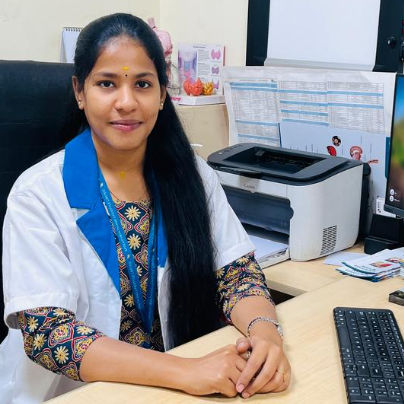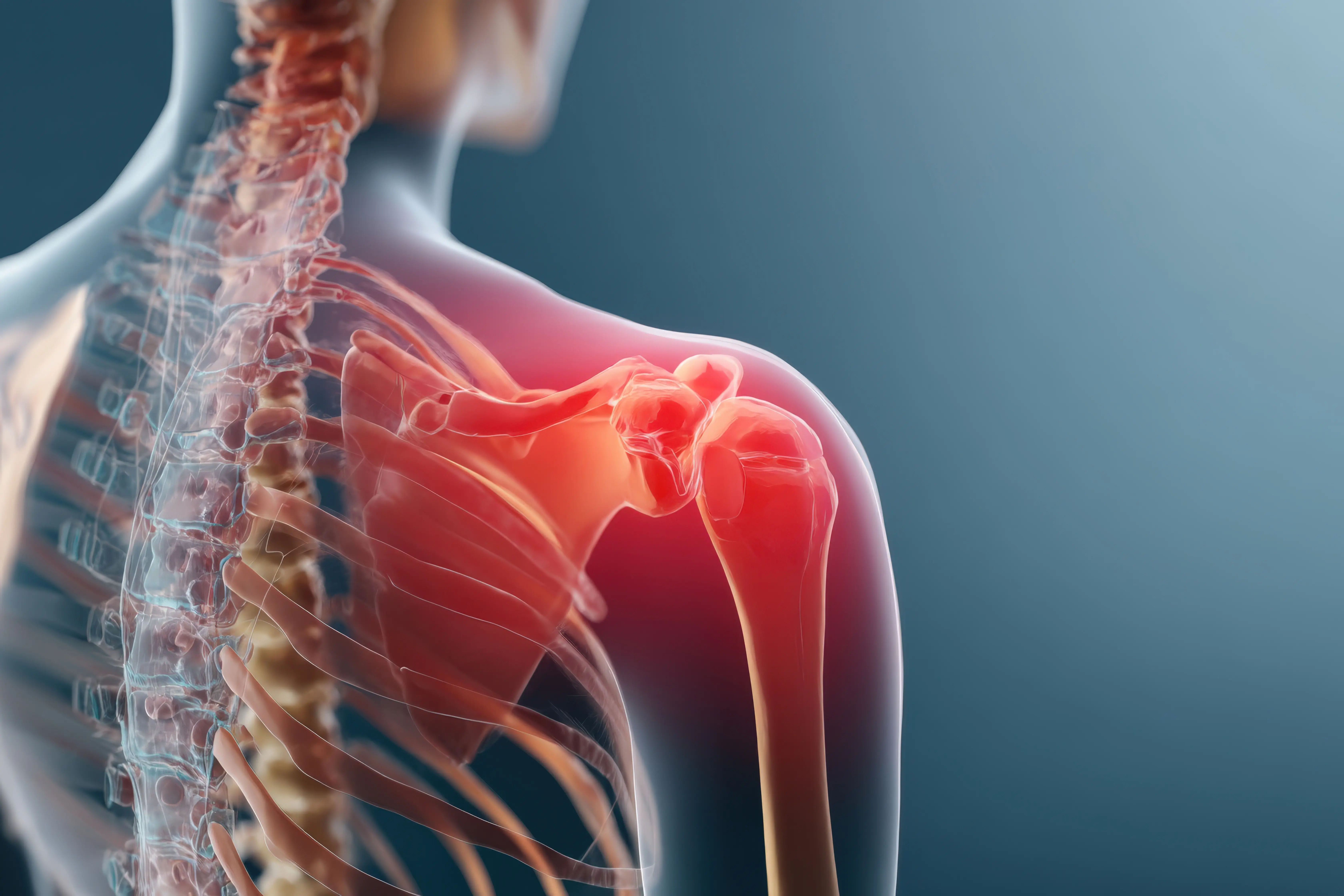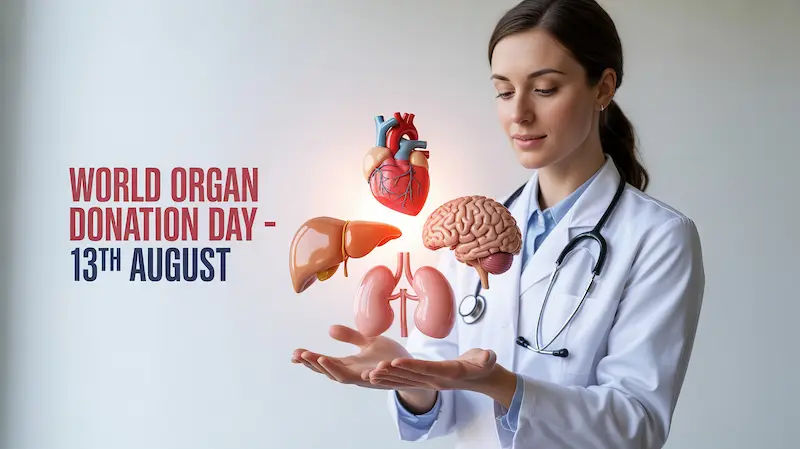Guide to Nutrition and Dietetics for Better Health
Explore the essentials of nutrition and dietetics, including healthy eating tips, balanced diets, and lifestyle habits to improve overall health and well-being.

Written by Dr. J T Hema Pratima
Reviewed by Dr. Rohinipriyanka Pondugula MBBS
Last updated on 13th Jan, 2026

Introduction
Ever feel overwhelmed by the constant stream of conflicting diet advice online? You're not alone. The world of food and wellness is buzzing with trends, but true, lasting health is built on the solid foundation of nutrition and dietetics, the science of how what we eat affects our bodies. This field moves beyond fads to focus on evidence-based strategies for nourishing yourself at every stage of life. Whether your goal is to manage a health condition, boost your energy, or simply feel your best, understanding these principles is the first step. This comprehensive guide will demystify the core concepts, explain the crucial role of professionals in the field, and provide practical, actionable tips to help you make informed choices for a healthier, happier you. Let's dive into the essential guide to category/nutrition and dietetics.
What Are Nutrition and Dietetics? Understanding the Science of Food
While often used interchangeably, nutrition and dietetics are two sides of the same health coin. Nutrition is the broader science that explores the nutrients in food, how the body uses them, and the relationship between diet, health, and disease. It's the foundational knowledge. Dietetics, on the other hand, is the practical application of that knowledge. It's a regulated health profession where qualified experts, known as dietitians, use scientific evidence to advise individuals and communities on what to eat to lead a healthy life or manage a medical condition.
Think of it this way: nutrition is the research and development behind a new technology, while dietetics is the engineering that applies that technology to solve real-world problems. A clinical dietitian, for instance, works in hospitals, translating complex nutritional needs into tailored meal plans for patients with conditions like kidney failure or cancer. This evidence-based approach is what sets qualified dietitians apart, ensuring advice is not just popular but proven and safe.
Consult Top Nutritionists
Macronutrients: The Powerful Building Blocks of Your Diet
Macronutrients are the nutrients your body needs in large amounts to create energy and maintain its structure and systems. There are three primary macros, each serving a unique and vital function.
Carbohydrates: Your Body's Primary Fuel Source
Carbohydrates are broken down into glucose, which is the preferred source of energy for your brain and muscles. The key is choosing the right kind. Simple carbohydrates, found in sugary drinks, pastries, and candy, provide quick energy but lead to sharp spikes and crashes in blood sugar. Complex carbohydrates, found in whole grains, legumes, vegetables, and fruits, are digested slower. They provide sustained energy, fiber, and a host of vitamins and minerals. For a steady energy supply, focus on filling your plate with complex carbs.
Proteins: The Essential Tools for Repair and Growth
Proteins are the body's construction crew. They are made of amino acids and are essential for building and repairing tissues, producing enzymes and hormones, and supporting immune function. Sources like chicken, fish, eggs, lentils, and tofu provide the necessary building blocks for muscle recovery after exercise, healing from injury, and overall cellular maintenance. Including a source of protein in every meal can also promote satiety, helping you feel full longer.
Fats: Why Healthy Fats Are Crucial for Your Body
Fats have been wrongly vilified. Healthy fats are indispensable for absorbing fat-soluble vitamins (A, D, E, K), protecting your organs, insulating your body, and supporting brain health. The goal is to prioritise unsaturated fats (found in avocados, nuts, seeds, and olive oil) and limit saturated and trans fats (found in processed foods and red meat). Including a moderate amount of healthy fats is a key part of a balanced diet plan for weight loss and overall wellness.
Micronutrients: The Vital Role of Vitamins and Minerals
If macronutrients are the fuel, micronutrients are the spark plugs and oil that allow the engine to run smoothly. These vitamins and minerals are required in smaller amounts but are critical for countless biochemical processes.
Fat-Soluble vs. Water-Soluble Vitamins
This distinction is important for understanding absorption. Water-soluble vitamins (Vitamin C and all B vitamins) are not stored in the body and need to be consumed regularly. They support energy production and immune function. Fat-soluble vitamins (A, D, E, K) are stored in the liver and fatty tissues. They require dietary fat to be absorbed and are crucial for vision, bone health, and blood clotting.
Key Minerals for Optimal Body Function
Minerals like calcium and magnesium are vital for bone health and nerve function. Iron is essential for carrying oxygen in the blood, and sodium and potassium work together to maintain fluid balance and nerve signals. A diverse diet rich in fruits, vegetables, nuts, and seeds is the best way to ensure you're meeting your mineral needs. If you suspect a deficiency, a doctor can recommend tests. Apollo24|7 offers a convenient home collection for tests like vitamin D, making it easier to check your levels.
Get Your Health Assessed
How a Clinical Dietitian Can Transform Your Health Journey
A clinical dietitian is more than just a nutrition coach; they are a licensed healthcare professional trained to provide Medical Nutrition Therapy (MNT). This is a therapeutic approach to treating medical conditions and their symptoms through a specifically tailored diet plan.
Medical Nutrition Therapy for Disease Management
For individuals with diabetes, a dietitian doesn't just say "avoid sugar." They teach carbohydrate counting, meal timing, and how to pair foods to prevent blood sugar spikes. For heart health, they create plans low in saturated fat and sodium to help manage cholesterol and blood pressure. They also specialise in gut health and nutrition, designing diets for conditions like IBS or Crohn's disease. This level of personalised, scientific care is invaluable for managing chronic disease and improving quality of life.
The Difference Between a Dietitian and a Nutritionist
This is a crucial distinction. The title "dietitian" or "registered dietitian nutritionist (RDN)" is legally protected. These professionals have a bachelor's degree in dietetics, completed a supervised internship, passed a national exam, and engage in continuing education. The title "nutritionist" is not uniformly regulated; it can be used by anyone, with varying levels of education. When seeking evidence-based advice, especially for a medical condition, looking for an RDN is your best bet for qualified guidance.
Conclusion
Navigating the world of health and wellness can be complex, but understanding the core principles of nutrition and dietetics provides a reliable compass. It’s about empowering yourself with knowledge, recognising the power of macronutrients, the necessity of micronutrients, and the profound impact of a balanced diet on your long-term well-being. Most importantly, it’s about knowing when to seek expert guidance from a qualified professional like a registered dietitian, who can provide personalised strategies based on solid science, not just trends.
Remember, optimal health is a journey, not a destination. It's built on consistent, informed choices. Start by implementing one or two practical tips from this guide, like adding more vegetables to your plate or choosing whole grains. Listen to your body, and don't hesitate to seek professional support to help you reach your goals. If you are struggling to manage a condition like diabetes or heart disease through diet alone, consult a doctor online with Apollo24|7 who can refer you to a qualified dietitian for further evaluation and a tailored plan.
Consult Top Nutritionists
Consult Top Nutritionists

Dr. Ramalinga Reddy
General Physician
5 Years • MBBS MD General medicine
Bengaluru
PRESTIGE SHANTHINIKETAN - SOCIETY CLINIC, Bengaluru
Dt. Ila Sharma
Clinical Nutritionist
18 Years • Master in food & Nutrition
Gurugram
VIPUL GREENS - SOCIETY CLINIC, Gurugram
Ms. Bhavana Shetty
Dietician
7 Years • DDHN & Masters in Clinical Nutrition & Dietetics
Bangalore
Apollo Sugar Clinic, Seetha circle bangalore, Bangalore

Dt. Prabhavathy
Clinical Nutritionist
8 Years • Msc Human Nutrition & Nutraceuticals
Madurai
Apollo Sugar Clinics, Madurai, Madurai
Dr Sumanth R
General Physician
2 Years • MBBS
Bengaluru
PRESTIGE SHANTHINIKETAN - SOCIETY CLINIC, Bengaluru
Consult Top Nutritionists

Dr. Ramalinga Reddy
General Physician
5 Years • MBBS MD General medicine
Bengaluru
PRESTIGE SHANTHINIKETAN - SOCIETY CLINIC, Bengaluru
Dt. Ila Sharma
Clinical Nutritionist
18 Years • Master in food & Nutrition
Gurugram
VIPUL GREENS - SOCIETY CLINIC, Gurugram
Ms. Bhavana Shetty
Dietician
7 Years • DDHN & Masters in Clinical Nutrition & Dietetics
Bangalore
Apollo Sugar Clinic, Seetha circle bangalore, Bangalore

Dt. Prabhavathy
Clinical Nutritionist
8 Years • Msc Human Nutrition & Nutraceuticals
Madurai
Apollo Sugar Clinics, Madurai, Madurai
Dr Sumanth R
General Physician
2 Years • MBBS
Bengaluru
PRESTIGE SHANTHINIKETAN - SOCIETY CLINIC, Bengaluru
More articles from General Medical Consultation
Frequently Asked Questions
What is the difference between a nutritionist and a dietitian?
The key difference is regulation and qualifications. 'Dietitian' is a protected title requiring a specific degree, internship, and exam. 'Nutritionist' can be a broader term with varying levels of education. For medical advice, always seek a Registered Dietitian Nutritionist (RDN).
Do I need to see a dietitian if I'm healthy?
Absolutely! A dietitian isn't just for treating illness. They can provide expert guidance on sports nutrition, healthy weight management, meal planning for a busy family, or optimising your diet for energy and prevention, helping you maintain your health.
What is Medical Nutrition Therapy (MNT)?
MNT is an evidence-based treatment provided by a registered dietitian to manage specific medical conditions like diabetes, heart disease, kidney disease, or gastrointestinal disorders through a personalised dietary plan.
How can I improve my gut health through diet?
Focus on a diverse diet rich in fiber from fruits, vegetables, and whole grains. Include fermented foods like yogurt, kefir, and kimchi for probiotics. Prebiotic foods like garlic, onions, and bananas help feed the good bacteria in your gut.
Are 'carbs' bad for you?
No. Carbohydrates are your body's main energy source. The problem is the type of carb. Highly processed, sugary carbs offer little nutritional value. Complex carbs from whole grains, legumes, and vegetables are essential for health and provide fiber, vitamins, and minerals.





.webp)